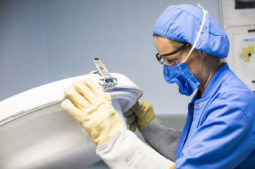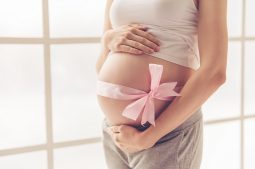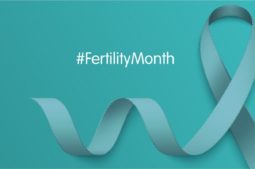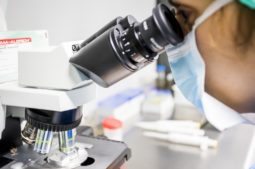Before deciding to preserve your fertility, it’s essential to understand what fertility preservation entails. How long can eggs remain frozen? Which is the ideal age to undergo the process?
Fertility preservation becomes particularly relevant when reproductive health cannot wait, and professional or personal development takes priority—whether individually or as a couple. In this blog, we will provide all the necessary information to help you navigate this process and choose the right time to proceed.
What Is Fertility Preservation?
Fertility preservation involves freezing eggs or sperm in liquid nitrogen at extremely low temperatures for an indefinite period, allowing their use in the future. This process prevents age-related fertility decline and ensures that gametes remain in optimal condition for use in assisted reproductive treatments without any degradation in cell quality.
When Should You Consider Fertility Preservation?
There are two primary scenarios in which fertility preservation is highly recommended:
- Oncology Patients. Cancer treatments can significantly impact fertility. Since chemotherapy and radiation therapy can be aggressive and harmful to reproductive cells, patients who freeze their oocytes before undergoing treatment may avoid the need for donor eggs in the future.
- Choosing the Right Time. If you wish to postpone motherhood, fertility preservation allows you to maintain the quality of your eggs, ensuring they remain viable until you decide to pursue pregnancy. Since reproductive health declines with age, freezing your eggs at a younger age helps safeguard your future fertility.
What Is the Best Age for Fertility Preservation?
Nowadays, many women aspire to become mothers without sacrificing their professional aspirations. Fertility preservation offers the possibility of maintaining the quality of a woman’s eggs, even if she decides to conceive after 36.
Younger women generally have higher-quality eggs and a greater likelihood of achieving a successful pregnancy. As a woman ages, especially after 40, ovarian reserve and egg quality decline significantly. However, women under 35 typically have better chances of conception.
Additionally, a lack of awareness regarding the effectiveness of assisted reproductive treatments often prevents women from taking timely action to avoid infertility. The ideal age range for egg freezing is between 28 and 35 years.
What Is Egg Vitrification?
Egg vitrification is an advanced freezing technique in which eggs are instantly frozen at ultra-low temperatures. They are stored in liquid nitrogen or nitrogen vapor tanks until needed for treatment. It is important to keep in mind that his process ensures the egg quality to remain unchanged, regardless of how much time passes before they are used.
What Is the Difference Between Egg Freezing and Vitrification?
Here are some key distinctions between conventional freezing and vitrification:
- Traditional egg freezing occurs gradually, whereas vitrification is an ultra-rapid process.
- In conventional freezing, eggs are cooled to temperatures between -40°C and -70°C before being stored in liquid nitrogen at -196°C. In vitrification, however, eggs experience a cooling rate of up to 23,000°C per minute.
- Both methods use cryoprotectants to prevent ice crystal formation, which can damage cells. However, in conventional freezing, some crystal formation may still occur. In vitrification, due to the ultra-rapid cooling, cells transition directly from a liquid to a glass-like state, eliminating the risk of crystal formation.
Benefits of Egg Vitrification
As previously mentioned, egg vitrification allows women to plan the timing of motherhood based on their personal and professional goals. Here are some of its key benefits:
- Women over 40 years old can conceive using their own eggs.
- Cancer patients can preserve their fertility before undergoing treatments that may damage reproductive cells, ensuring future reproductive success.
- Eggs frozen at a younger, more fertile age retain their original quality when used in treatment, reducing the chances of chromosomal abnormalities in embryos.
New fertility preservation programs: My IVI Prediction and My IVI Genetic
At IVI we now offer two very advanced programs for women who decide to preserve their fertility. We seek to provide them with new tools to decide on their future and their priorities.
On the one hand, we have My IVI Prediction. Thanks to artificial intelligence, the patient who vitrifies her oocytes will receive a report with information of maximum interest for her project. We indicate the quantity and quality of oocytes obtained, but also the chances of pregnancy with each of them. This way, the patient will know if she needs to perform one more cycle. On the other hand, My IVI Genetic adds genetic tests to the patient. This completes the information, to detect any possible abnormalities before starting fertility treatment.
If you are considering motherhood and need assistance with assisted reproduction, IVI is here to help. Simply fill out the contact form below, and our team will reach out to schedule an appointment or answer any questions you may have.





Comments are closed here.